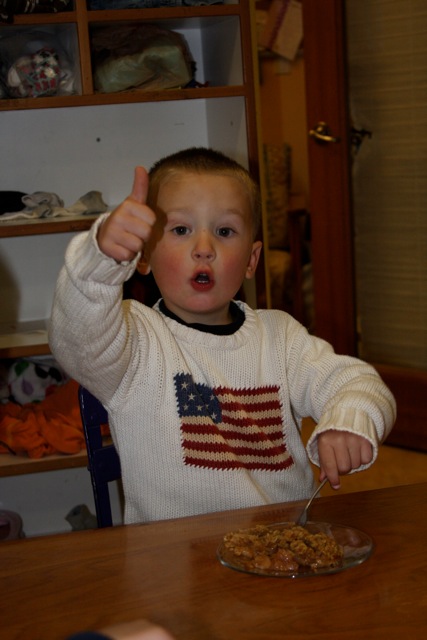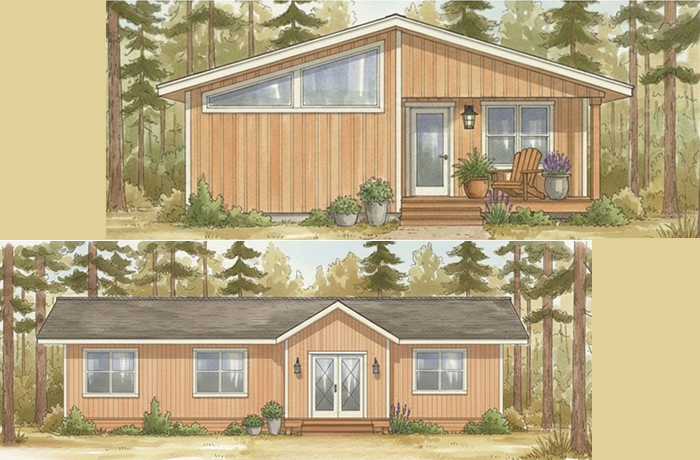||| FROM TERESA CHOCANO for ORCAS MONTESSORI SCHOOL |||
Did you know that the Orcas Montessori School has been on Orcas for the past 33 years? The school was opened in a basement of a home in West Sound, moved to a double wide trailer across from the public school, operated in a public school classroom and moved 23 years ago to its current home on North Beach Road. Its recently completed remodel and expansion was funded by donations and a HUD Community Development Block Grant. These grants are for programs with over half of its families at or below the county’s median income. The remodel has doubled the school’s footprint with a light and spacious new classroom. It’s current lead staff has been at the school over 20 years.
Although OMS has been serving hundreds of families in our community for so many years, there are many misconceptions and myths spread about it that we’d like to bust.
MYTH #1 Montessori is elitist
TRUTH: Orcas Montessori serves all families on Orcas regardless of their income. The first Montessori school was opened in a tenement building in the poorest neighborhood in Rome There are Montessori Schools on every continent except Antarctica, serving children from all economic demographics.
While Montessori schools since their beginning have been committed to serving children from diverse economic levels, the Orcas Montessori School is the only Montessori program in the state serving families on ECEAP, a tuition free state funded program. We have openings for families enrolled in ECEAP, DSHS Working Connections and have a robust tuition assistance program with the help of the Early Childhood Education Initiative (ECEI). The school’s mission is to be accessible to any child and that a family’s income is not an obstacle to attending the school.

MYTH #2: Montessori is a passing trend
TRUTH: Maria Montessori, one of the first female physicians in Italy, set up the first “Casa de Bambini” in Rome over a hundred years ago. Scientists are now “discovering” what she observed in children’s development. As she began her practice, she spent years, observing how children learn, their stages of development and developed an educational pedagogy and materials shaped by that careful observation. Educational research is now catching up and adapting to what she discovered and used to develop her method, educational materials and environment.
A dynamic learning environment is created where all children can thrive as they learn to make choices and take responsibility to care for their needs and learning.
MYTH #3: Montessori schools are not preparing children for transitioning to life
TRUTH: Montessori schools offer a wide variety of hands on activities for the children to explore and offers self-directed learning through the exploration of these intentional materials within a carefully prepared environment.
By having high quality materials available for the children to choose from in an environment that fits their size and interests, they have the opportunity to develop independence, focus, confidence, creativity, fine, gross motor, academic and social skills.
Creating a school community that values each child’s unique abilities and gifts in a mixed age classroom gives the children the opportunity to develop at their own pace and build confidence. The carefully prepared environment offers the children a great deal of freedom in which to pursue their interests creatively. Materials are presented to each child individually after observation of their interests and level of skill development. There is a focus on nurturing their ability to find their personal interests and how to pursue them. One example of this is that language skills are presented to the children to develop at their own pace so that they can create their own stories and books.
By having the benefit of spending three years in the program, the child has the experience of both having older peers as role models to learn from and to be an older student themself to mentor and share their skills with their younger peers. Many creative artists, musicians, entrepreneurs and academics attended Montessori schools and attribute their success to their early learning experiences there. A Montessori motto is “education for life” with the aim of helping the children learn how to learn which will serve them their entire lives.

MYTH #4: Montessori is rigid and OMS excludes children from their program
TRUTH: Montessori schools and OMS are not strict and rigid programs. While Montessori may not be for every child, in its 33 years OMS has never excluded a child or asked a family to leave the program. The staff meets with each family before the child begins and develops a program for that child based on their needs and abilities. Good communication is a cornerstone of the program. Throughout the child’s attendance, family and staff works as a team for the child’s success.
MYTH #5: Montessori has religious affiliations.
TRUTH: Although there are some private Montessori schools that have a religious affiliation, the Orcas Montessori School is non-religious non-profit organization that does not discriminate on the basis of race, color, sex, religion, sexual orientation, language, country of origin or disability.
The Montessori pedagogy respects the inner and spiritual development of the child as something to be encouraged and nurtured.
Orcas Island has an authentic Montessori program open for children aged 2 ½ -6 where they can travel this educational journey at their own pace within a supportive community peers.
We still have openings for fall enrollment.
If you have questions or would like more information about our program, please contact Teresa at 360-376-5350, email at info@orcasmontessori.org and visit our Open House on Saturday June 12 from 10-12.
**If you are reading theOrcasonian for free, thank your fellow islanders. If you would like to support theOrcasonian CLICK HERE to set your modestly-priced, voluntary subscription. Otherwise, no worries; we’re happy to share with you.**









Very interesting. I often wondered what made Montessori schools different and, it would seem to me, a better educational opportunity for the very young child. This insight makes me even more supportive of the method. Parents have told me that the Montessori schooling is conspicuous when the child is placed in a class with children from other types of early education or no early education. I wondered about this, but now I can see where the child’s development is encouraged in a more naturally intuitive way. Thank you.